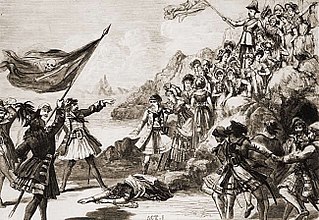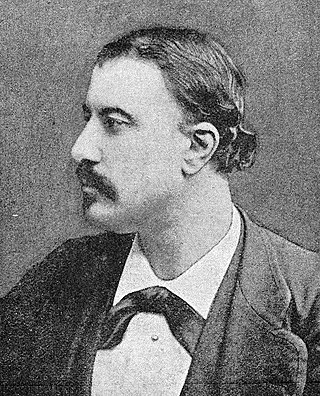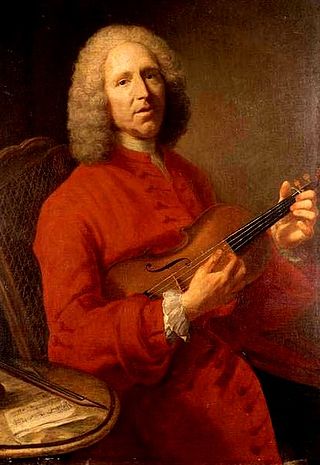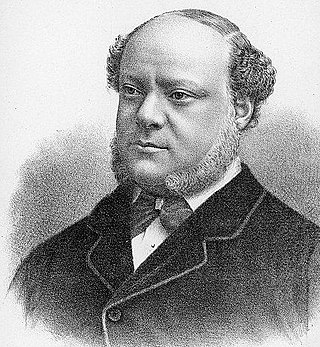Related Research Articles

The Pirates of Penzance; or, The Slave of Duty is a comic opera in two acts, with music by Arthur Sullivan and libretto by W. S. Gilbert. Its official premiere was at the Fifth Avenue Theatre in New York City on 31 December 1879, where it was well received by both audiences and critics. Its London debut was on 3 April 1880, at the Opera Comique, where it ran for 363 performances.

Pauline Viardot was a nineteenth-century French mezzo-soprano, pedagogue and composer of Spanish descent. Born Michelle Ferdinande Pauline García, she came from a musical family and took up music at a young age. She began performing as a teenager and had a long and illustrious career as a star performer.

Sir John Goss was an English organist, composer and teacher.

Carl August Nicholas Rosa was a German-born musical impresario best remembered for founding an English opera company known as the Carl Rosa Opera Company. He started his company in 1869 together with his wife, Euphrosyne Parepa-Rosa, and popularised opera in Britain and America, performing standard repertory in English, as well as operas by English composers.

The Carl Rosa Opera Company was founded in 1873 by Carl Rosa, a German-born musical impresario, and his wife, British operatic soprano Euphrosyne Parepa-Rosa to present opera in English in London and the British provinces. The company premiered many operas in the UK, employing a mix of established opera stars and young singers, reaching new opera audiences with popularly priced tickets. It survived Rosa's death in 1889, and continued to present opera in English on tour until 1960, when it was obliged to close for lack of funds. The company was revived in 1997, presenting mostly lighter operatic works including those by Gilbert and Sullivan. The company "was arguably the most influential opera company ever in the UK".

Sir Frederic Hymen Cowen, was an English composer, conductor and pianist.

Frederic Emes Clay was an English composer known principally for songs and his music written for the stage. Although from a musical family, for 16 years Clay made his living as a civil servant in HM Treasury, composing in his spare time, until a legacy in 1873 enabled him to become a full-time composer. He had his first big stage success with Ages Ago (1869), a short comic opera with a libretto by W. S. Gilbert, for the small Gallery of Illustration; it ran well and was repeatedly revived. Clay, a great friend of his fellow composer Arthur Sullivan, introduced the latter to Gilbert, leading to the Gilbert and Sullivan partnership.

The Fairy-Queen is a semi-opera by Henry Purcell; a "Restoration spectacular". The libretto is an anonymous adaptation of William Shakespeare's comedy A Midsummer Night's Dream. First performed in 1692, The Fairy-Queen was composed three years before Purcell's death at the age of 35. Following his death, the score was lost and only rediscovered early in the twentieth century.

Imeneo is an opera seria in three acts by George Frideric Handel. The Italian-language libretto was adapted from Silvio Stampiglia's Imeneo. Handel had begun composition in September 1738, but did not complete the score until 1740. The opera received its first performance at the Lincoln's Inn Fields in London on 22 November 1740, and received another performance on 13 December. Handel then revised the score, and this revised version received concert performances in Dublin, on 24 and 31 March 1742.

Hercules is a Musical Drama in three acts by George Frideric Handel, composed in July and August 1744. The English language libretto was by the Reverend Thomas Broughton, based on Sophocles's Women of Trachis and the ninth book of Ovid's Metamorphoses.

Les fêtes de l’Hymen et de l’Amour, ou Les dieux d'Egypte is an opéra-ballet in three entrées and a prologue by the French composer Jean-Philippe Rameau. The work was first performed on March 15, 1747, at the La Grande Ecurie, Versailles, and is set to a libretto by Louis de Cahusac. The opera was originally composed as part of the celebrations for the Dauphin’s marriage to Maria Josepha of Saxony. Les fêtes de l’Hymen proved to be a popular work and by the March 1776 it had been performed exactly 106 times. The librettist, Cahusac, was especially pleased with the ways in which he had succeeded in giving especial import to the supernatural elements of the work—the plot is based on Egyptian mythology—and to allow particular use of impressive large-scale stage machinery, which was much admired by the audience. The opera contains seven ballets, a consequence of Cahusac’s desire to further integrate dance and drama, which grew from the typical French devotion to ballet, particularly when allied with opera.

Alberto Randegger was an Italian-born composer, conductor and singing teacher, best known for promoting opera and new works of British music in England during the Victorian era and for his widely used textbook on singing technique. His compositions included ballets, masses and other church music, operas and numerous other vocal pieces. He also edited several collections of vocal music.
Thorgrim is an opera in four acts with music by the British composer Frederic H. Cowen to a libretto by Joseph Bennett after the Icelandic tale "Viglund the Fair", first performed at the Drury Lane Theatre, London, on 22 April 1890. The premiere cast included the mezzo-soprano Zélie de Lussan and the tenor Barton McGuckin.
Harold, or the Norman Conquest is an opera in four acts with music by the British composer Frederic H. Cowen with a libretto by Edward Malet, edited by Frederic Edward Weatherly, adapted into the German by L.A. Caumont, and first performed at Covent Garden, London on 8 June 1895.
Signa is an opera originally conceived in four acts with music by the British composer Frederic H. Cowen with a libretto by Gilbert Arthur à Beckett, with revisions by H.A. Rudall and Frederic Edward Weatherly after Ouida, with an Italian translation by Giannandrea Mazzucato, first performed in a reduced three-act version at the Teatro Dal Verme, Milan on 12 November 1893. It was later given in a two-act version at Covent Garden, London on 30 June 1894.
Francis Hueffer was a German-English writer on music, music critic, and librettist.

John Alexander Fuller Maitland was an influential British music critic and scholar from the 1880s to the 1920s. He encouraged the rediscovery of English music of the 16th and 17th centuries, particularly Henry Purcell's music and English virginal music. He also propounded the notion of an English Musical Renaissance in the second half of the 19th century, particularly praising Charles Villiers Stanford and Hubert Parry.

Louis Plaidy was a celebrated German piano pedagogue and compiler of books of technical music studies.
The Lady of Lyons; or, Love and Pride, commonly known as The Lady of Lyons, is a five act romantic melodrama written in 1838 by Edward Bulwer-Lytton, 1st Baron Lytton. It was first produced in London at Covent Garden Theatre on 15 February 1838 and was revived many times over the rest of the 19th century. It was also adapted into two operas, and formed part of the plot of an operetta.

Wilhelm Kuhe was a Czech pianist and piano teacher, composer and administrator born in the city of Prague, in the first half of the nineteenth century.
References
- 1 2 Chisholm, Hugh, ed. (1911). . Encyclopædia Britannica . Vol. 7 (11th ed.). Cambridge University Press. p. 346.